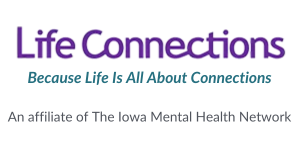Social media can be a versatile tool for communication, sharing information, entertainment, and it’s popularity continues to grow among teens. While it can be a useful tool, it also appears to be a growing concern for parents as they are left with many questions, such as: Is my child using social media too much? Can social media use impact my child’s mental health? What can I do to help my child navigate social media appropriately?
As this topic continues to spark interest from parents, researchers have begun to dive deeper into some of these questions, and develop measures that can be used to help children stay safe and connected online.
How does social media impact the mental health of teens?
Studies estimate that teens are online for about 9 hours every day, not including work for school; and this number continues to increase. With the rise in social media use among teens especially, researchers have explored the impact of use on mental health and well – being; identifying it can have a negative impact on mental health for adults and teens. A 2019 study found that using social media more than three times a day predicted poor mental health and well-being in teens. Other studies have shown that social media increases the likelihood of the following: anxiety, depression, feelings of loneliness, and poor body image. Teens who spend frequent time on social media, are flooded with images, messages, advertisements, etc. These messages have a significant impact on how they view themselves and the world around them, which can cause emotional distress and cause harm to mental health. While some messages may appear subtle and harmless, other teens find themselves in the middle of cyberbullying. A study found that 59% of U.S. teens reported that they had experienced bullying or harassment online; a leading concern for parents when considering their child’s social media use. The impact of cyberbullying on mental health amongst teens can also be significant as they may experience anxiety, depression, low self-esteem or display a variety of behavioral concerns. Parents can play a crucial role in assisting their teens and adolescents in finding a healthy balance when using social media and mitigating potential harm.
What can you do to help your child navigate social media appropriately?
First, do your own research and understand the basics. Identify which platform your child wants to use and understand how the platform works. Understand and discuss who will be allowed to view your child’s profile and who they can share information with.
Second, discuss reasonable limits with your child. Allow them to be a part of deciding how much use is appropriate. Consider granting kids more freedom over time when they have shown that they are developmentally ready for increased use. Like earning a driver’s license, teens are not simply handed the keys to a car with no prior supervision and guidance behind the wheel. They gradually gain more freedom over time and demonstrate that they can operate a vehicle safely before driving on their own. Discuss using this strategy to help teens earn more autonomy with social media use.
Third, check in with your child periodically. As opposed to “snooping” on your child’s phone, have open conversations with your child about how they are using social media and if they have any concerns about their experience. Don’t be afraid to ask questions and normalize conversation around social media. Follow your child and their friends on the platform if it feels appropriate and based on your child’s age.
Ultimately, be a good role model when it comes to social media use. Consider your own use of social media, and if you are setting a positive example for your child. Communicate how you decide your own limits for social media use with your child.
If you have concerns about your child’s mental health, you can learn more about the services at Life Connections by visiting our website at www.life-connections.org.
Written by: Sarah Matus
LMSW Mental Health Therapist
Because Life is All About Connections
Life Connections provides in-home Behavioral Health Intervention services, Therapy services, autism (ABA) services and Children’s Mental Health waiver services in our 13 office locations and approved schools across Iowa. Life Connections was founded in March of 2009 with the intent to serve the children and families of Cedar Rapids and surrounding cities.
Life Connections is a highly professional and caring counseling and behavioral health provider. We offer a wide array of services to treat mental health issues including Applied Behavior Analysis Services, Behavioral Health Intervention Services, mental health therapy, school-based therapy programs, and substance use treatment.
For more information, please call 319-409-6922.
Resources:
- National Suicide Prevention Hotline 800-273-8255
- Crisis Text line text to 741741
- The Trevor Project – for LGBTQ+ young adult community 866-488-7386
- Rape, Abuse, and Incest National Network 800-656-4673
Start Your Services
Start Mental & Behavioral Health Services with Life Connections | Because life is all about connections.

